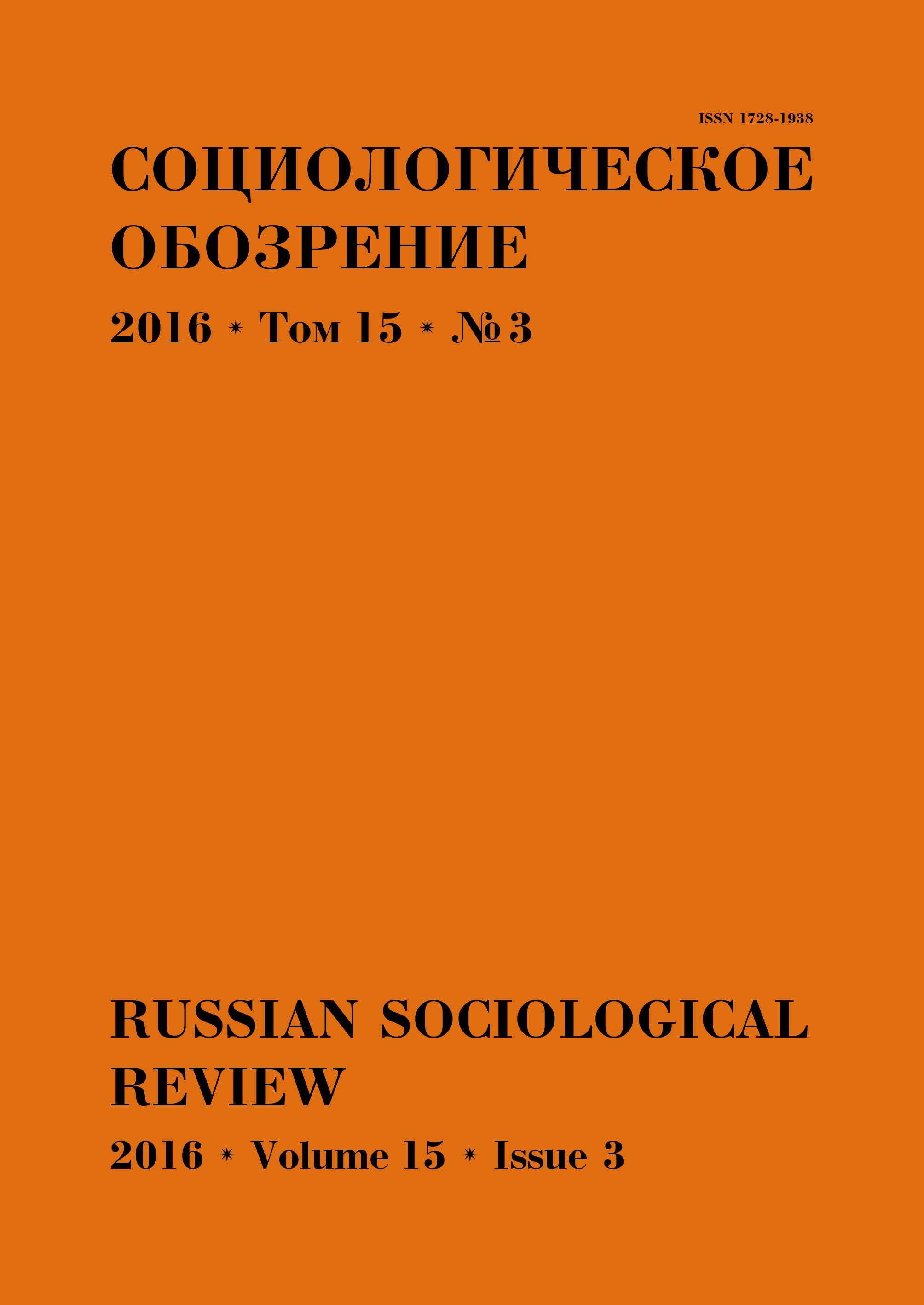Motifs of Government Rhetoric on Youth in Russia
Keywords:
rhetoric, power, discourse, traditionalism, authorities, youth, youth policy, constructionism, patriotism
Abstract
The article deals with the rhetoric of Russian authorities in relation to youth from May, 2012, the beginning of Vladimir Putin’s third presidential term, to May, 2016. The study is based on a constructionist research program of four dimensions of social problems discourse developed by Peter Ibarra and John Kitsuse, rhetorical idioms, motifs, claims-making styles,and counter-rhetorics. The analysis focuses on the identification of the motifs of the power rhetoric in relation to young people, that is, recurrent speech constructions highlighting a central dimension of the problematized situation and the responses to it. The analysis of the rhetoric confirms the assumption about the pragmatic attitude of the Russian ruling elite concerning youth. Authorities problematize an alleged external influence on young people, while a number of situations that could be defined as a problem such as the limited life chances of young people, HIV/AIDS, or repressive criminal policy, etc., do not have the status of the problem. The study of speeches of the president, government programs, and Russian government reports shows that the specific motifs of the authorities’ rhetoric in relation to youth are “threat,” “protection,” and “traditional values” while the permanent features of the power discourse are militarization and traditionalism. The authorities emphasize “traditional values” without specifying what these values are. These values are declared as “true” and opposed to “quasi-values,” without clarifying the principles of such division. The shifts in the interpretation of the “national idea” from the competitiveness of the country to patriotism, and in the interpretation of patriotism from the “love for Motherland” to the readiness to defend the state by military means, are revealed.Downloads
Published
2016-09-28
How to Cite
ЯсавеевИ. (2016). Motifs of Government Rhetoric on Youth in Russia. Russian Sociological Review, 15(3), 49-67. Retrieved from https://cfjournal.hse.ru/index.php/sociologica/article/view/8
Issue
Section
Research Papers




